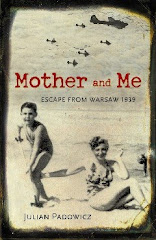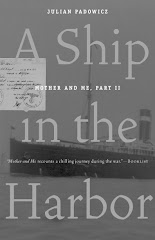I have some friends to keep
me company on my runs now. You probably won’t
see them if you drive by, though some have.
There is Kip, a retired English professor turned author (No, he isn’t
me) whose bread always manages to land with the jam side down against the
floor. He’s the poster boy for bad
karma, some of it self inflicted, some his parents’ doing. His hero-worshiping father named him Adolf or
his non-nurturing mother sent him to boarding school at the age of seven.
There’s Kip’s wife, the
delectable sculptress Amanda who is creative and creatively accident
prone. In Barcelona
she had an allergic reaction to something that swelled her face to the point
that she didn’t resemble her passport photo and they couldn’t leave Spain. Or, when they got back to Venice, Massachusetts,
her late, abusive husband, Scott turned out to not be as “late” as she had
claimed, sending Kip looking for a gun and making her a bigamist. Then there’s the urbane Lill, recognized as
the finest cook and most gracious hostess in all of Venice, whom Kip almost
married and whom he sometimes wonders if he shouldn’t have.
And you probably won’t find Venice, Massachusetts
on your AAA road atlas either, though some have. It’s on the coast and, his first summer there,
Kip was invited to sail down to Florida
in November weather on a sailboat of dubious seaworthiness with a captain no
one else would sail with. Because of the
evening he had spent with the man’s wife in a hot tub and the things she had
told and shown him, he felt obliged to go.
That really came about as a result of the murder he had wandered into a
few nights earlier. He had really come
to Venice to write The Great American Novel.
Then there’s Kip’s boarding
school roommate, Alex, who shows up on their doorstep and reminds him of things
better left forgotten. But that doesn’t
happen till book four.
Book one is Writer’s Block in which Kip meets
Amanda, is smitten, and decides to quit his teaching job, burn his rickety
bridges, settle in Venice, and turn his lemon of a life into the Great American
Novel. Only, as I said, Kip’s bread
tends to land jam side down and the new writer and the old writing teacher
inside him aren’t on the same page. The
Great American Novel collapses of its own ponderous weight. It’s while he drifts rudderless in this new
community that he wanders into a murder, the lady’s hot tub, and the boat ride
invitation. Critics have called Writer’s Block “hilarious”, “memorable”,
“richly layered”, and “great reading.” (See Amazon.com for more reviews.)
The Best Sunset in Venice is where the “deceased” Scott shows up, where a
former Green Beret befriends Kip, where a woman colonel in the Israeli army
gives him a therapeutic massage, and where Amanda lets her hair down after too
much Lagavulin Scotch.
In A Scandal in Venice Kip is asked to provide a father figure to an
unfortunate teenager and finds that even the best laid plans…… Amanda, meanwhile, decides to reconcile Kip
with his memory of his departed, non-nurturing mother, and finds Anna a formidable
in-law even in death. Alexander’s Part-time Band, still in my
computer, is where Kip’s boarding school roommate shows up, while Amanda joins
a liberal church and Kip is made to doubt his writing ability.
Actually, I’ve been told
that, if you’ve read at least one of the books, then you will see my friends if you pass us on Hope Street or Ponus Ridge. Kip is the one with the Vandyke, which he
insists is not a goatee, since a goatee comes with a mustache. The willowy Amanda wears her brown hair in
braids tied off with one brown ribbon and one green one to match her one brown
eye and one green one. Silver-haired Lill,
with her classy bearing and impeccable grooming you can’t mistake for anyone
else. Alex is very large. There is also Doris, the librarian without a
neck, who claims she has a black belt in the Kama Sutra, Frank, the boat
builder, Lorna Bliss, president of Amanda’s church, and Kip’s old friend Vera. I’m the one with the baseball cap and the
droopy mustache.


